I was once in a situationship, long before Gen-Zers had a term for it. It was the most exhilarating and also the most emotionally draining romantic experience of my life. While I loved the idea of coloring outside the lines of a typical relationship, things got messy once feelings got thrown into the mix and we were no longer on the same page about the purpose of our arrangement. In the process, I lost a good friend. So, trust me when I say situationship rules matter.
If you find yourself in a similar state and are not clear about what to do in a situationship, find yourself caught up in the situationship vs relationship dilemma, or are unsure about how to define a situationship you have going on with someone, I’ve got you covered.
In consultations with relationship expert and counselor Dhriti Bhavsar (Master’s in Clinical Psychology), who specializes in relationship, breakup, and LGBTQ counseling, I’ll touch upon all there is to know about a situationship and setting some ground rules to navigate it without getting hurt. Let’s begin by understanding what is a situationship all about.
What Is A Situationship?
Table of Contents
So, what is a situationship? If you turn to the dictionary to define situationship, here’s what you’ll find: “a romantic or sexual relationship that is not considered to be formal or established”. Now, what does not “formal” or “established” mean? In simpler terms, a situationship means a casual and fluid romantic and/or sexual relationship between two people, with no commitment or expectations.
To define situationship, Dhriti says, “An absence of labels and conversations about the future are the tell-tale markers of a situationship.” Along similar lines, a Reddit user says, “When you end up consistently seeing someone like they are your significant other but are noncommittal and refuse to take the leap to solidify an actual relationship.”
Related Reading: Situationship – Meaning And 10 Signs You Are In One
Now, on a surface level, a situationship may seem a lot like any other casual, undefined intimate connection like a no-strings-attached relationship or a friends-with-benefits arrangement. However, there is a distinct difference. In other undefined connections like NSA or FwB relationships, there is clarity on terms of engagement. In a situationship, things tend to get more muddled. That’s why situationship vs relationship dilemma is far too common. If you’re in such an undefined intimate connection, the first order of business to navigate it successfully is to identify if it amounts to a situationship.
How do you know if you are in a situationship

Since a situationship can closely resemble so many other forms of casual relationships, it is imperative to know for sure if you’ve landed yourself in one. As Dhriti says, “Not knowing what to expect from a relationship or what is acceptable and what’s not can be a dangerous and confusing place to be in.” So, how do you know if you are in a situationship? Here are some clear signs to watch out for:
- You behave like romantic partners but there has been no define-the-relationship conversation
- You have both agreed to keep things casual
- You don’t make long-term plans involving each other. Your plans focus on the next meetup, next hookup, or at best, what you’d be doing a couple of weeks later
- Either one or both of you are hooking up with or dating other people
- You aren’t integrated into each other’s lives — for example, you haven’t met each other’s family or friends
- Sex is likely the centric part of your relationship
- There is no consistency in your communication patterns — you may text back and forth for days, spend weekends together, and then go without any contact for days
- You may talk to each other with ease about a lot of topics, but steer clear of deep, meaningful conversations about emotions, vulnerabilities, and of course, the future
- There is little to no emotional intimacy in the relationship
- You haven’t made any promises to each other
- You don’t expect your situationship partner to show up for you in your time of need and they feel no obligation to do so — and vice versa
- Your conversations are carefully crafted so as not to “ruin” what you have
- Even if you have been together a significant amount of time — in my case, for instance, the situationship last eight months — you haven’t crossed any relationship milestones
- The thought of “where is this going” makes you feel anxious and uneasy
Related Reading: 9 Types Of Situationships And Their Signs
15 Non-Negotiable Situationship Rules – Follow These To Protect Yourself
As may be clear from these indicators of a situationship, a connection of this sort comes with a lot of gray areas. To be able to navigate these muddied waters, you need some situationship rules to protect yourself emotionally. Take it from me, I didn’t think much of rules and boundaries, and chose to just go with the flow — as is the wont of 20-somethings who think they can conquer the worlds — and ended up falling in love with my situationship partner. He, on the other hand, was nowhere close to being emotionally invested.
My feelings led me to go along with a lot of things I wasn’t comfortable with, say yes when I wanted to say no, and put up with being treated in ways that left me hurt because I was holding on to hope that if I just gave it time, he’d begin to feel the same way about me. That obviously didn’t happen but I ended up in a broken heart. Apparently, my experience isn’t isolated.
Related Reading: 11 Situationship Red Flags You Should Know About
If scores of Reddit threads on situationships are any indicator, in this casual, dynamic, undefined “relationship”, one person always catches feelings and gets hurt in the process. As this Reddit user says, “A situationship is the least “casual” of casual relationships, you basically get all the perks of a relationship which includes going on dates, sleeping together, enjoying each other’s company, staying over at the other’s but without the titles of boyfriend/girlfriend, or expectation it will turn into a proper committed relationship where you end up saying you love each other and build a future together. I don’t recommend ever getting into one, someone is always more invested in one person than the other, just ends in heartbreak and confusion.”
That’s why my situationship advice to you would be to always focus on and prioritize yourself. Here are 15 situationship rules that will help you do just that:
1. Keep it fun and light
What is a situationship if not a casual relationship with no labels and obligations? As Dhriti says, “In a situationship, any conversations about the future are off limits. The focus is on the here and now.” So, if the focus is not the here and now, why not make the most of it? Keep things light and playful, enjoy the present, and don’t get invested in the idea of a shared future.
Related Reading: The Complete Guide To “We Act Like A Couple But We Are Not Official” Situation
2. Be in touch with your feelings
Weighing in the situationship vs relationship difference, a Reddit user says, “You date each other like you’re in a relationship, but you’re not exclusive. Most of the time, it ends badly because one person will always want more than the other one.” If there is one recurring theme that you may have noticed so far, it’s that there is a very real chance of catching feelings even if you’re unofficially dating.
So, it’s important to check in with yourself from time to time and assess how you feel toward the person you’re in a situationship with. If you do find yourself catching feelings or falling head over heels in love, it’s time to figure out how to get out of a situationship. Don’t stick around, hoping, and wondering, “Can a situationship turn into a relationship?” More often than not, it does not.

3. Prioritize yourself
Wondering what to do in a situationship to protect yourself and avoid getting hurt? Make a conscious effort to focus on and prioritize yourself in this connection. Identify why got into a situationship,
- Was it for sex?
- Or to enjoy the perks of a casual relationship minus the baggage of expectations and commitment?
- Was it because you don’t have time for a more committed relationship?
Not losing focus on your needs will help you prioritize them over that of your partner as well as the relationship itself.
4. Don’t hesitate to vocalize your needs
Speaking of needs, don’t hesitate to be vocal and assertive about yours. Dhriti advises, “Communicate your needs in a situationship clearly, and at the same time, be open to accepting your partner’s needs.” This requires healthy communication on the part of both partners. So, don’t shy away from having a sit-down about what this situationship means to both of you, what you seek from it, and how you intend to go about fulfilling these needs. In doing so, discuss:
- Finding a middle ground where there is a mismatch in needs
- Deal-breakers
- What you would do if one partner’s needs began to change
Related Reading: 10 Critical Emotional Needs In A Relationship
5. Respect your schedule and time
While it’s normal for situationship partners to not communicate consistently or even offer explanations about periods of absence, don’t let this norm become an excuse for your partner to walk all over you and your schedule or treat you badly. My situationship partner, for instance, would go incommunicado for days and then show up at my door when his schedule cleared up, expecting me to drop everything to hang out with him.
In hindsight, I feel that his sense of entitlement was emboldened by my lack of willingness to say no. Don’t let that happen to you. One of the most vital situationship rules is to always respect your schedule and time so that your partner will too. Here is what you can do:
- Discuss when you’d be available to each other
- While it’s okay to make impromptu plans once in a while (remember, the idea of a situationship is to have fun), don’t let it become the norm
- If your partner disregards your schedule, stand up for yourself
6. Make space for other important relationships in your life
Wondering what to do in a situationship to protect yourself? Here is a piece of situationship advice that can help you find the answer: make sure your entire life doesn’t revolve around this casual, fleeting connection, no matter how good it feels. Nurture space in the connection to nurture other important relationships with friends, coworkers, and family. Leading a well-rounded life is key to not letting a situationship become larger than life.
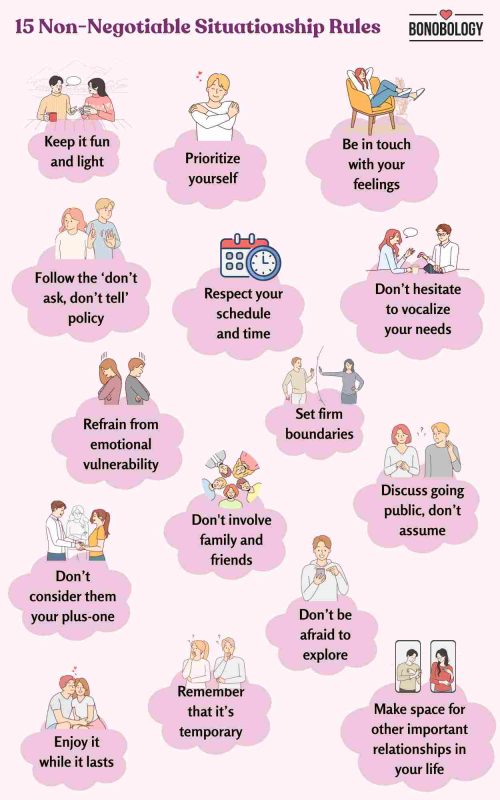
7. Don’t be afraid to explore
One of the basic situationship rules is that there is no commitment or expectation of exclusivity — unless there has been an explicit conversation about the latter. So don’t hold yourself back from dating or talking to other people. Now, I’m not saying that you absolutely have to date other people. But if someone interesting comes along and you feel like exploring what it could lead to, don’t hold yourself back on account of your situationship. Remember, you’re not in a relationship. At the same time, be mindful of the rules of dating multiple people to protect yourself.
8. Follow the ‘don’t ask, don’t tell’ policy
Talking about situationship rules, Dhriti says, “There may be certain things you don’t share with each other, and that’s perfectly normal.” One such thing that I can think of is each other’s experiences with dating or hooking up with other people.
No matter how much you tell yourself that your situationship arrangement is completely casual or how devoid of romantic feelings it may be, there is just no way to know for sure how you or your partner may feel about and react to details of the other person’s dating escapades. As far as that goes, stick to the ‘don’t ask, don’t tell’ policy.
Related Reading: Why Does He Keep Me Around If He Doesn’t Want A Relationship?
9. Refrain from emotional vulnerability
Dhriti says, “In a situationship, the entire connection between two people hinges on hiding true feelings and steering clear of any emotional vulnerability. It’s the only way a surface-level involvement can remain just that.” So, naturally, a valuable piece of situationship advice would be to steer clear of letting your guard down in front of your partner.
- Don’t tell about your hopes and fears
- Don’t discuss past traumas and emotional wounds
- Refrain from trading childhood stories
- Leave past loves and heartbreak out of the conversation
These are just the kinds of things that pave the way for emotional intimacy in a relationship. Once there is emotional intimacy, romantic feelings are not far behind.
10. Don’t consider them your plus-one
To protect yourself from the risk of falling for your situationship partner, and being left wishfully wondering, “Can a situationship turn into a relationship?”, make sure you don’t have any relationship-like expectations. For instance, expecting your situationship partner to be your plus one to weddings, high school reunions, or even parties.
Doing so indicates that you’ve begun to view them as an integral part of your life, and that goes against the very basic situationship rules of keeping things transient and casual.
Related Reading: Casual Dating — 13 Rules To Swear By
11. Discuss whether you want to go public, don’t assume
In a typical relationship, there is the expectation of making things public once both partners commit to each other and there is clarity on how they see their future together. Couples announce being together to their friends, post on social media, attend social events together, and so on.
However, that’s not how it necessarily goes in a situationship. My situationship partner, for instance, didn’t want any of his friends to know that we were a thing. So, one of the important situationship rules is to always discuss whether you want to tell people about your arrangement. To avoid stepping on any toes, never assume.
12. Introducing family and friends may be a no-go
I remember my situationship partner once calling me up to say that he was on his way to pick me up. I was hanging out with friends, so I asked him to take a detour to my location. When he showed up, I insisted that he join us for a drink before we went out. While he did come in and chatted my friends up, he wasn’t pleased that I had taken the liberty to do that. The night was a bust and he became somewhat distant afterwards.
Based on my experience, my situationship advice to you would be to avoid introducing your partner to your friends and family. It just places a lot of pressure and leaves unsaid expectations hanging over a fragile connection, and doesn’t play out well.

13. Set firm boundaries
One of the most critical elements that can help you navigate a situationship successfully is setting boundaries early. Right from the get-go, be clear about what you want from this connection, and let your partner know what’s acceptable and what’s not.
Dhriti agrees, and says, “Boundaries help manage expectations, which is exceedingly important in a situationship. They also help you see the other person for who they really are and not through a colored lens of who you want them to be.” Besides, if and when you get to the point of figuring out how to get out of a situationship, these boundaries will make it easier to cut the cord.
14. Enjoy it while it lasts
In adhering to all the situationship rules I have laid out for you, don’t forget to have fun with your situationship partner and savor this unusual relationship while it lasts. As long as you don’t let feelings into the mix and feel comfortable and secure with the person you’re with, a situationship can be an immensely fun ride. Make the most of it.
Related Reading: What Does It Mean When Someone Says They Are Looking For ‘Something Casual’?
15. Remember that it’s temporary
A situationship is by definition fleeting in nature. After a point, you will find yourself at a crossroads, where you’re either wondering how to get out of a situationship or can a situationship turn into a relationship. Now, the way forward really depends on both people involved. If the romantic feelings are mutual, a situationship can materialize into something more. For that to happen,
Dhriti advises, “You have to be willing to invest in the relationship, work on building trust, talk about things like commitment and future, and prioritize open communication.” However, more often than not, the end of a situationship is not this idealistic, and people end up parting ways. Either way, know that a situationship cannot last forever. It will either grow into something more or wither away.
Key Pointers
- A situationship is a romantic and/or sexual relationship between two people sans any labels, commitment, or expectations
- An agreement to keep things casual, no long-term plans, no involvement in each other’s lives, and focus on the here and now are some signs you’re in a situationship
- If you find yourself in one, it’s important to navigate it skillfully to avoid getting hurt
- Keep it fun and light, being in touch with your feelings, prioritizing yourself, setting boundaries, and being prepared to let go when the connection has run its course are some ways you can do that
Situationship rules can vary depending on the people involved and their circumstances. For instance, for some, staying over at a situationship partner’s place can be a non-started whereas, for others, even taking weekend trips together may be acceptable. While you can establish ground rules that work well for you, make sure you follow these basic ones to make this experience fun and enjoyable rather than an emotionally harrowing ride.
Seeing Someone vs Dating – 7 Differences You Must Know About
Dating With Intention: Meaning And Rules To Set You Up For Success
Your contribution does not constitute a charitable donation. It will allow Bonobology to continue bringing you new and up-to-date information in our pursuit of helping anyone in the world to learn how to do anything.

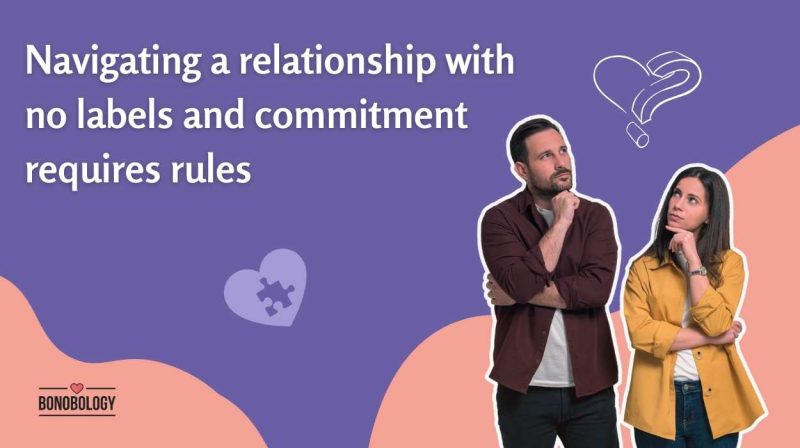




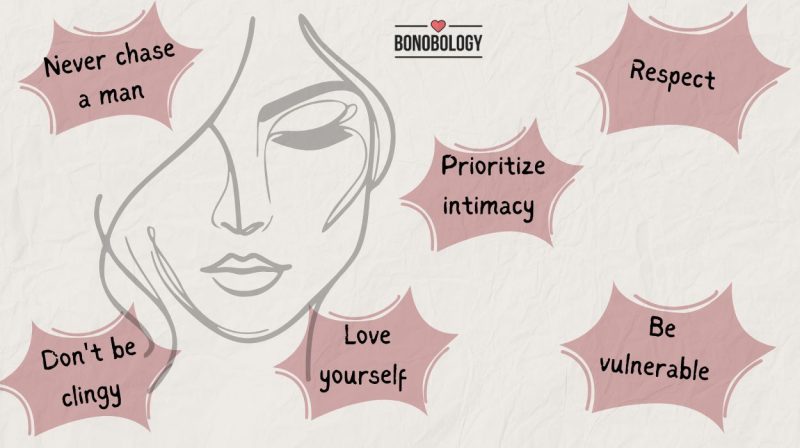

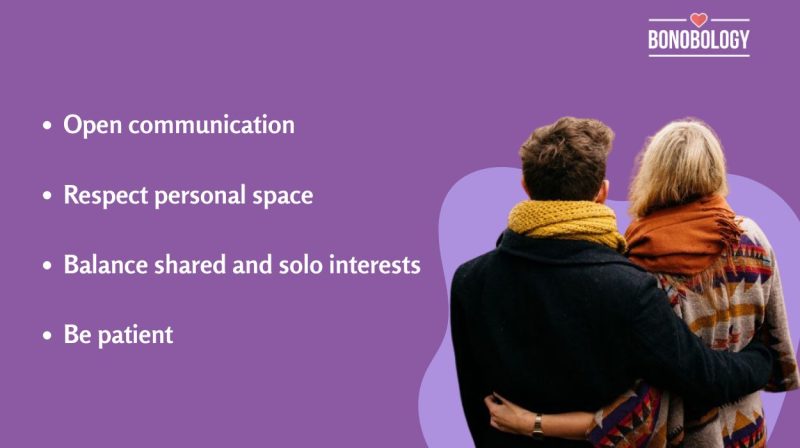




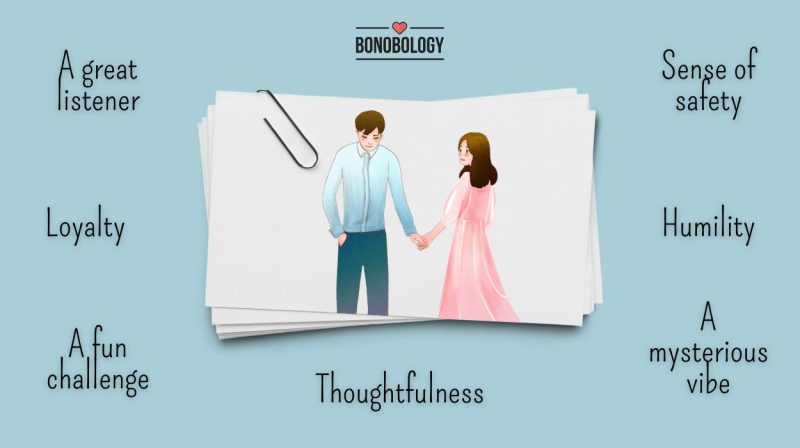


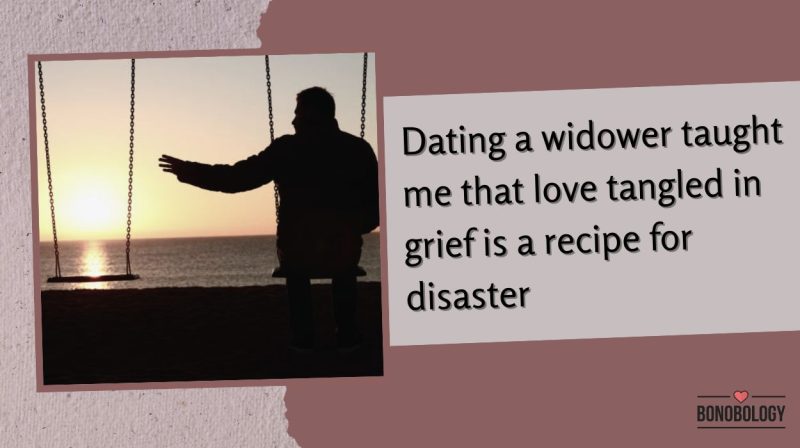

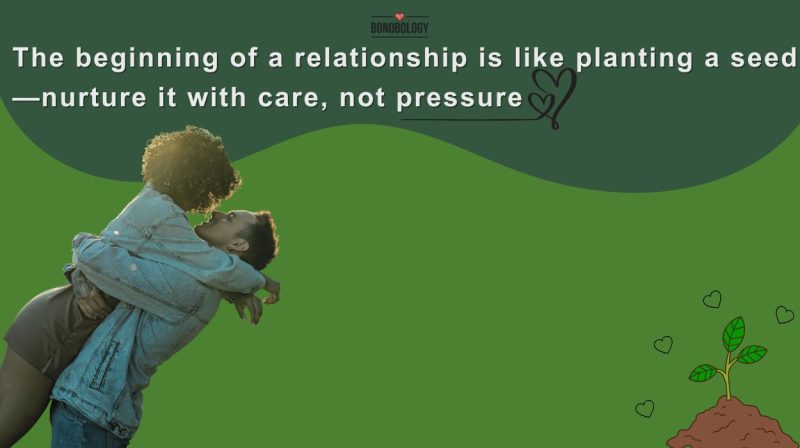


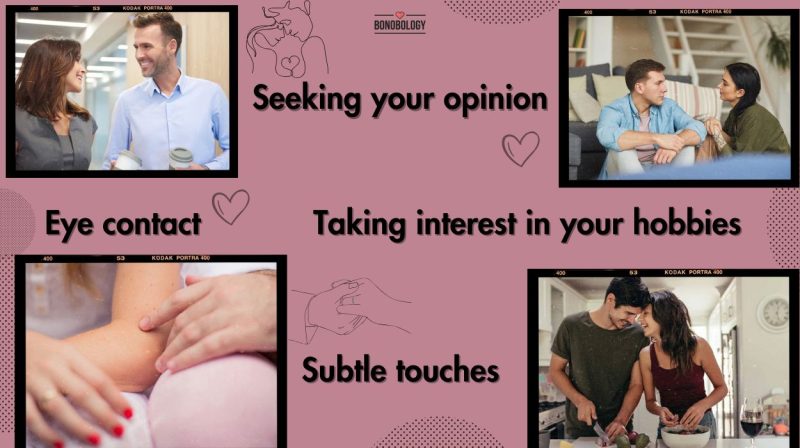
Featured
Good Rizz Lines For A Girl: Best Flirty, Smooth And Funny Lines That Work
Introvert Dating: A Complete Guide (2026)
The Role of Trust in Relationships: How to Build and Maintain It
5 Communication Styles In Relationships: What They Mean & How To Use Them
21 Nuggets Of Relationship Advice For Women
What Is Simping And Is It A Red Flag In Guys?
Introvert Dating Introvert: A Complete Guide
Is He Shy Or Not Interested? 26 Ways To Tell The Difference
Gen Z Dating: Understanding and Navigating the Landscape
What Are Fun Dating Questions? 140 Playful, Flirty, and Deep Starters
Navigating Exclusivity In A Relationship: How To Do It Right
Do Girls Like Shy Guys? 7 Reasons They Do
101 Fun Date Night Questions To Laugh, Flirt, And Bond Over
161 Weird Questions To Ask Your Boyfriend And Get Him Talking
Why I Will Never Date A Widower Again -A Woman’s Story
How Long Should You Date Before Getting Engaged
Dating Guide: 9 Things To Never Do In The First Month Of Dating
11 Red Flags When Dating A Separated Man | Don’t Ignore These
152 Most Stupid Pickup Lines of All Time | AVOID THESE At All Costs
21 Clear Signs Of Unspoken Attraction Between Two People